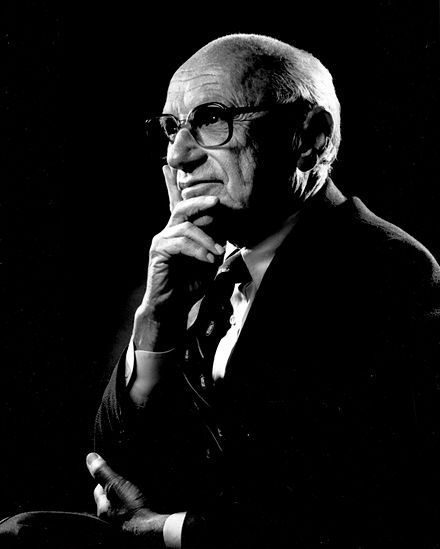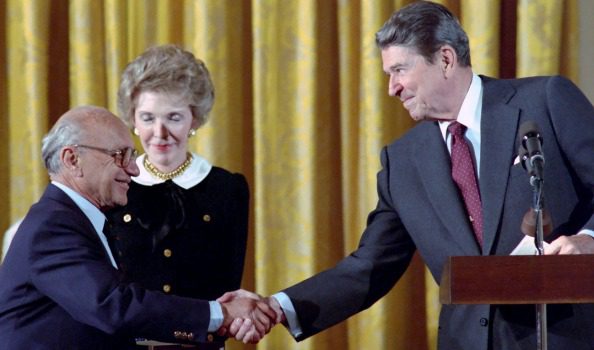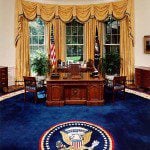
As I closed out my undergraduate degree in classical Greek and philosophy — both highly marketable fields that, I’m sure, thrilled my long-suffering parents — I was very briefly but seriously tempted to change my field altogether and seek to go to graduate school in economics. It’s a an area that has long interested me. And, now as then, I lean strongly toward free-market viewpoints. I’ve long fantasized, for instance, about how desirable it would be to make Henry Hazlitt’s brief classic, Economics in One Lesson, mandatory reading for admission to Congress. (I would probably bundle it with Frédéric Bastiat’s short but powerful little book The State. And, while I’m at it, why not make the Constitution of the United States a required text, as well? Now there’s a thought!)
I’ve been thinking about Hazlitt for the past twenty-four hours or so, and particularly about this passage, which is cited in a 2017 article from the American Enterprise Institute: “Henry Hazlitt on Why Protective Tariffs Reduce Productivity, Efficiency, and Wages and Make Us Worse, Not Better Off”
One of the economists that I most admired was the late Milton Friedman (1912-2006), of the University of Chicago, winner of the 1976 Nobel Prize. One of the unexpected highlights of my life, by the way, was the week that I spent in his company (and that of several other prominent economists, including other past and feature Nobel laureates) back in 1976, just two or three months prior to his winning of that Nobel Prize, at the University of St. Andrews in Scotland. Professor Friedman was a prominent and vocal conservative, an advocate of free markets and limited government. So I’ve been thinking about him, as well. This brief 1 October 1993 article from the Federal Reserve Bank of Illinois offers a relevant sampling of his thought: “Friedman on free trade: More than 20 years ago the economist Milton Friedman wrote a Newsweek column extolling the virtues of free trade. That column still rings true today.”
I’ve also been thinking about Ronald Reagan and his views on free trade. I was happy and proud to be a Republican when Ronald Reagan was president, and I wish he were still around. It was, once, morning in America. Here’s a five-minute radio address of President Reagan’s that you might find interesting: “President Reagan’s Radio Address on Free and Fair Trade on April 25, 1987”

While I’m at it, here is some really good reading on current American trade policy. I realize that some or all of these may be inaccessible online to some of my readers. I still recommend these articles. If necessary, there are public libraries. The issues involved are enormously important, as important as anything in the economics of this mortal, material world ever becomes:
Wall Street Journal: “Trump’s New Protectionist Age: Blowing up the world trading system has consequences that the President isn’t advertising.” The Wall Street Journal lists several probable consequences of Mr. Trump’s new trade policy, saying “This is far from a comprehensive list, but we offer them as food for thought.” Among the consequences that the Journal foresees:
- New economic risks and uncertainty
- Harm to American exports
- A bigger Washington swamp
- The end of U.S. economic leadership
- A major opportunity for China
The Economist: “President Trump’s mindless tariffs will cause economic havoc: But the rest of the world can limit the damage”
National Review: “Tariffs a Harsh New Demonstration of the Folly of Economic Planners: Trump has engineered something like a sanctions regime targeting Americans.”
National Review: “Americans Will Pay the Price for Reckless Tariffs”
National Review: “Trump’s Totally Arbitrary Tariff Regime” There is some amazing material in this one. Here’s a sampling:
President Donald Trump once said of Mexico, “They’re not sending their best.” We can now say the same of the White House and the team that assembled yesterday’s sweeping tariff hikes.
The Trump administration announced a 10 percent tariff on all imports from the Australian territories of the Heard and McDonald Islands.
Those are uninhabited islands. What, are the penguins stealing American jobs?
The administration also announced a 10 percent tariff on imports from Jan Mayan, a Norwegian volcanic island. It has no permanent residents, just 18 personnel operating a meteorological station and airfield.
Those are among the most embarrassing details in an announcement that made clear that the people assembling these tariffs had no idea what they were doing.
On Wednesday, Israel suspended all tariffs on all U.S. goods. On Thursday, Trump announced the U.S. government would impose a 17 percent tariff on all goods imported from Israel.
It is extremely difficult to argue that the Trump administration is pro-Israel when it is imposing what now amount to unilateral tariffs.
And you know who got “just” a 10 percent tariff rate in yesterday’s announcement? Egypt, Saudi Arabia, Qatar, the United Arab Emirates, and Kuwait.
You know who got “only” a 10 percent tariff rate announced yesterday? Afghanistan. The Taliban got a sweeter deal from the Trump administration than Israel did.
National Review: “Pat Toomey Saw the Tariff Madness Coming”
As I close, let me say that I fully expect some to accuse me of “Trump Derangement Syndrome.” Heck, I — a limited-government, free-market, strict-constructionist, libertarian-leaning, anti-communist, pro-life cultural conservative of very, very long standing — have, in recent years, been called a “libtard” and accused of being a Marxist because of my mostly unexpressed disapproval of Mr. Donald J. Trump and of major elements of the MAGA movement. (Believe me, if I wanted to make this a political blog, it would look very different than it does.)
But I want to make it clear that I understand why so many Americans, including many that I know well and hold in high esteem and love, opted to pull the lever for Donald Trump (even while I could not). Assuming that it’s authentic, here is one powerful illustration: “VIDEO: Female Fencer Booted From Tournament After Refusing To Compete Against Male Opponent: Sullivan formerly competed against males.” I regard such stories as symptoms of civilizational insanity.
You may have noticed that this blog did nothing to observe April Fool’s Day. I judged that it would be redundant to do so.













